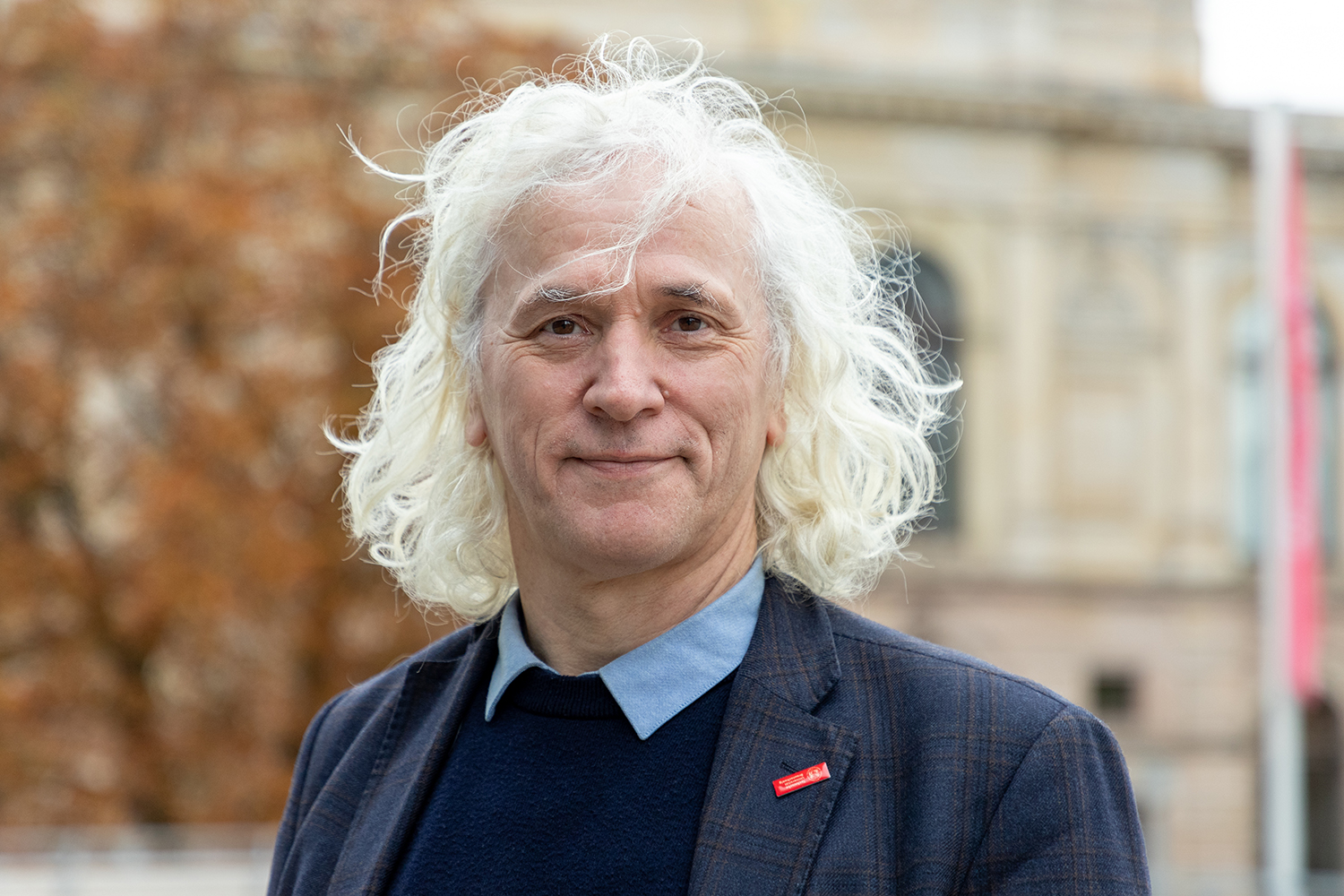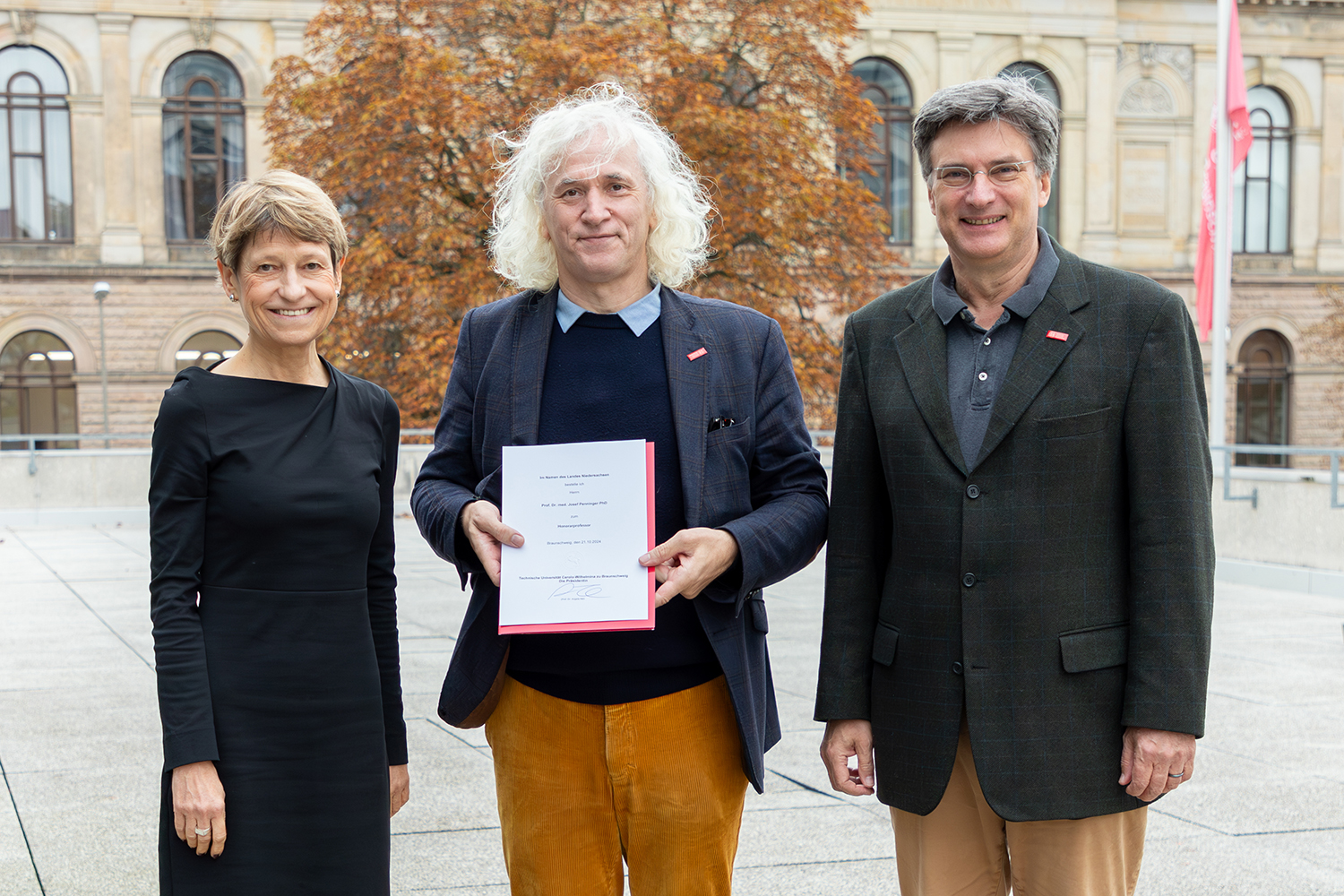Honorary professorship for Josef Penninger Honoured for outstanding research and networking
Prof. Josef Penninger, Scientific Director of the Helmholtz Centre for Infection Research (HZI) in Braunschweig, has been appointed honorary professor of the Faculty of Life Sciences at Technische Universität Braunschweig. The faculty honours his outstanding achievements in cell and molecular biology research, including the cloning of the SARS-CoV-2 receptor, and his outstanding ability to network scientific institutions.

Honoured: Prof. Josef Penninger, Scientific Director of the HZI and Head of the ‘Innovative Organoid Research’ Department. Picture credits: Kristina Rottig/TU Braunschweig
Prof. Martin Korte from the Zoological Institute at TU Braunschweig, spokesman for the TU research focus ‘Engineering for Health’ and head of the HZI research group ‘Neuroinflammation and Neurodegeneration’:
“Josef Penniger is one of the most creative, innovative and productive cell and molecular biologists worldwide. Wherever he is, in whatever field he is currently working, he gives new impetus to the networking of people and institutions and, above all, he supports young scientists who want to tread new, risky paths.”
Prof. Josef Penninger’s basic approach is to modify genes in mice and determine the effects of these mutations on the development of the whole organism and on disease. He has used these mutations to identify fundamental principles of development and fundamental mechanisms of disease. Throughout his career, he has elucidated the cellular basis of cell-cell communication and developed translational therapies for cancer, immunological disorders and viral infections (including SARS-CoV-2). He has also developed methods to better understand and treat cardiovascular disease.
“As the scientific director of the HZI, Prof. Penninger is particularly important for the further development of the site,” says Prof. Korte. This is reflected in the fact that he is currently developing one of the largest production facilities for organoids (3D organ systems in culture) for the heart, blood vessels and brain. “We are in constant dialogue here, not least through the joint BRICS at TUBS, to advance systemic life sciences, modelling of infections and the immune system, as well as metabolic processes.”
Prof. Martin Korte particularly appreciates the importance of Prof. Penninger for the Braunschweig-Hannover research region with the HZI, the Hannover Medical School and TU Braunschweig. “He will continue to improve the network between them, strengthen cell biology in the education of biology and biotechnology students and improve doctoral training.” He also expects Prof. Penninger to promote young scientists as junior research group leaders and to act as a mentor.

TU President Angela Ittel with Prof Josef Penninger and Prof Frank Eggert, Dean of the Faculty of Life Sciences. Picture credits: Kristina Rottig/TU Braunschweig
About the person
Josef Penninger was born in Gurten, Upper Austria, in 1964. After studying medicine at the University of Innsbruck, he began his scientific career at the University of Toronto, Canada. In 2002, he founded the Institute of Molecular Biotechnology (IMBA), a research institute of the Austrian Academy of Sciences in Vienna, and became its executive director. In 2018, he returned to Canada, where he became Director of the Life Sciences Institute at the University of British Columbia. On 1 July 2023, he was appointed Scientific Director of the Helmholtz Centre for Infection Research (HZI) in Braunschweig.
Since 1995, Josef Penninger has received several research grants in the EU and North America, including a C150 Canada Research Chair in Functional Genetics, an Innovator Award from the USA, an EU Excellence Grant and an ERC Advanced Grant.
Josef Penninger has received a long list of awards and honours. These include the prestigious Ernst Jung Prize for Medicine, the Descartes Prize (the highest European award) and the Wittgenstein Prize, often referred to as the ‘Austrian Nobel Prize’. In 2015, he was ranked 11th among the most influential thinkers in the German-speaking world. In addition, Penninger has twice been ranked among the world’s top 10 most cited scientists, holds an honorary professorship at Qingdao University in China, and has been awarded the Austrian Cross of Honour.
